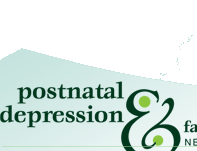 |
 |

|
|
|

Post traumatic stress disorderTo read the Introducton to Anxiety Click Here What is it?Following a traumatic event, it is normal to experience anxiety responses. In most people these resolve with time. However if anxiety symptoms continue and have not resolved within a month or so, then a diagnosis of Post Traumatic Stress Disorder (PTSD) may well be appropriate. We usually recognise these as things like, natural disasters, terrorist incidents, serious accidents, military combat, or violent personal assaults like rape. A traumatic experience can be any experience involving the threat of death or serious injury to an individual or another person close to them (e.g. their baby) so it is now understood that PTSD can be a consequence of a traumatic birth. This may be the result of an emergency caesarian section or a baby being rushed away for resuscitation. PTSD can occur with childbirthSome women may experience events during childbirth (as well as in pregnancy or immediately after birth) that would traumatise any normal person. For some women, it is not always obvious dramatic events that trigger childbirth trauma. Other factors such as loss of control, may be highly traumatic for them, (particularly if they have had certain negative experiences in the the past.) It is normal for people to experience some or all of the symptoms described below following a traumatic event. These symptoms often resolve themselves after a month or so. However, if you continue to experience these symptoms then psychiatrists call this post traumatic stress disorder and you may need some help to relieve the symptoms. SymptomsThe things people with PTSD may experience include:
It is important to remember that the above symptoms are a normal response to a traumatic experience. The re-experiencing of the event with flashbacks accompanied by genuine anxiety and fear are the mind's way of trying to make sense of an extremely scary experience. They are not a sign individual 'weakness' or inability to cope. Over time these feelings will usually settle but if not then can result in problems. The memory of that time wouldnt go away, it was so bad and I was in so much pain, I felt completely out of control and thought something was seriously wrong, that I was going die. I couldnt stop crying every time I thought about it.
|
||||||||||||||
 |
 |
 |
| GAD | Anxiety | Panic Disorder |
Home | About us | Baby | Books & Links | Contact Us | Culture | Fact Sheets | Family/Whanau | Fathers | Glossary | Medical Info | Medications | Post Natal Depression | Pregnancy | Q&A | Related Conditions | Stories | Support | Treatments |